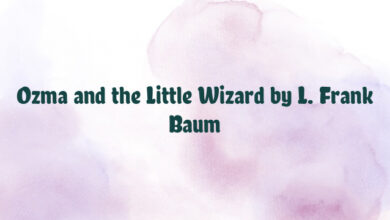
Terrible Epps by Richard Connell
§1
The blue prints and specifications in the case of Tidbury Epps follow:
Age: the early thirties.
Status: bachelor.
Habitat: Mrs. Kelty’s Refined Boarding House, Brooklyn.
Occupation: a lesser clerk in the wholesale selling department of Spingle & Blatter, Nifty Straw Hattings. See Advts.
Appearance: that of a lesser clerk. Weight: feather. Nose: stub. Eyes: apologetic. Teeth: obvious. Figure: brief. Manner: diffident. Nature: kind. Disposition: amiable but subdued.
Conspicuous vices: none.
Conspicuous virtues: none.
Distinguishing marks: none.
Tidbury was no Napoleon. He was aware of this, and so was everybody in the hat company, including, unfortunately, Titus Spingle, the president, who felt that he knew a thing or two about Bonapartes because he had once been referred to in a straw-hat trade paper as the Napoleon of Hatdom.
Mildly, as he did everything else in life, Tidbury admired, indeed almost envied Mr. Spingle’s silk shirts, which customarily suggested an explosion in a paint factory. But such sartorial grandeur, Tidbury felt, was not for him. He stuck to plain white shirts, dark blue ties and pepper-and-salt suits. The pepper-and-salt suit was invented for Tidbury Epps.
Tidbury worked diligently and even cheerfully on a high stool and a low salary, copying neat little black figures into big black books. The salary and the stool were the same Tidbury had been given when he first came to New York from Calais, Maine, ten years before.
It probably never entered his head, as he bent over his columns of digits that crisp fall morning, that in their sanctum of real mahogany and Spanish leather his employers were discussing him.
“Whitaker has quit,” announced Mr. Blatter, who acted as sales manager.
Mr. Spingle’s acre of face, pink and dimpled from much good living, showed concern.
“How come you can’t keep an assistant, Otto?” he inquired.
“After they’ve been with me for six months,” explained Mr. Blatter modestly, “they get so good that they simply have to get better jobs.”
“Well, got any candidates for the place?” queried the president.
“Burdette?” suggested Mr. Blatter.
Mr. Spingle eliminated Burdette with a flick of his finger.
“Too young,” he said.
“Wetsel?”
“Too old.”
“Fitch?”
“Too careless.”
“Hydeman?”
“Too inexperienced.”
“Well,” ventured Mr. Blatter, “what about Tidbury Epps?”
Mr. Spingle’s shrug included his shoulders, face and entire body.
“He’s neither too old, too young, too careless nor too inexperienced,” advanced Mr. Blatter.
“You’re not serious, Otto?”
“Sure I am. Epps has been with us ten years and he’s worked hard. I believe in giving our old employees a chance.”
“So do I,” rejoined the Napoleon of Hatdom; “but you know perfectly well, Otto, that Tidbury Epps is a dud.”
“He’s as conscientious as a Pilgrim father,” remarked Mr. Blatter.
“That’s the trouble with him,” snorted Mr. Spingle.
“He spends so much time being conscientious that he hasn’t time to be anything else. Not that I object to a man having a conscience, y’understand. But Epps hasn’t anything else. You know how it is in the hat trade, Otto; you’ve got to be a good fellow.”
Mr. Spingle paused to pat his silken bosom, in hue reminiscent of sunset in the Grand Cañon. That he was a good fellow, a bon vivant, even, was generally admitted in the hat trade.
“You see,” went on the Napoleon of Hatdom, “your assistant has to be nice to the trade. That’s almost his chief job. Remember the motto of our house is, ‘Our business friends are our personal friends.’ That’s meant a lot to us, Otto. Now and then you’ve simply got to take a big buyer out and show him a good time–buy him a meal and take him to the Winter Garden. You and I are mostly too busy to do it, but your assistant isn’t. Whitaker made us a lot of good friends, and good customers, too, because he was a regular fella and knew the ropes. But can you imagine old Epps giving a party?”
Mr. Blatter was forced to admit that he couldn’t.
“But he’s so willing,” he argued.
“Oh, sure,” agreed Mr. Spingle; “and sober and industrious and stands without hitching and all that. But he’s too much of a hermit. No more personality than a parsnip. No spirit. No nerve. No fire. No zip. Sorry I can’t jump him up; he may be a good man, but he’s not a good fellow.”
“I suppose it will have to be Hydeman, then,” remarked Mr. Blatter, rising. “He’s a little too slick and flip to suit me, and we don’t know much about him, but I suppose he’d know how to show a buyer Broadway.”
“I’ll bet he would,” said Mr. Spingle. “Try him out. But watch his expense account, Otto.”
So Tidbury Epps continued to enjoy his high stool and his low salary and to copy endless little figures into big black books. His shoulders drooped a little when he heard of Hydeman’s quick promotion, but he said nothing.
Messrs. Spingle and Blatter, being interested solely in what went on outside men’s heads, did not attempt to find out what was wrong with Tidbury Epps. But had a psychoanalyst peered darkly into the interior of Tidbury’s small round cranium he would have instantly noted that Mr. Epps was suffering from a bad case of inferiority complex, complicated by an acute attack of Puritanical complex.
If anybody was to blame for this it was not Tidbury himself but his Aunt Elvira, who, with the aid of a patented cat-o’-nine-tails she had sent all the way to Chicago for, willow switches from her own back yard, and an edged tongue that cut worse than either, had confined his juvenile steps to a very straight and exceedingly narrow path by the simple process of lambasting him roundly whenever he so much as glanced to the right or to the left.
Aunt Elvira was a lean woman with no digestion to speak of, and the chief tenet of her philosophy was that whatever is enjoyable is sinful. She impressed this creed on young Tidbury with her thin but sinewy arm, until one day while castigating him violently for laughing at a comic supplement that the groceries had come in she succumbed to an excess of virtue and a broken blood vessel.
Tidbury promptly came to New York with two suits of flannel underwear and many suppressed desires, and went soberly to work in the hat company. His subsequent life was as empty of adventure, variety, sin or success as the life of a Hubbard squash. His job wholly absorbed him. The little figures in the big books became his only world. He had never learned to play.
Yet people liked Tidbury, even while they thought him kin to the snail. He had a quiet twinkle in his eye and he took over mean jobs and night work without a peep of protest. It was his willingness to take on overtime work, and his quiet competence that first attracted the approving eye of Mr. Blatter. But Mr. Blatter had to admit that Mr. Spingle had diagnosed the case of Tidbury Epps all too accurately; Tidbury was indubitably, incurably a dud; and that is worse than being a dub. If any latent fire lurked beneath that pepper-and-salt bosom no one had ever glimpsed so much as a spark of it. Tidbury never lived up to that twinkle in his eye.
One would have said that Tidbury was as inconspicuous as an oyster in a fifteen-cent stew, and yet love, mysterious, ubiquitous love, found him out and laid him violently by the heels.
It was the round black eyes of Martha Ritter, the new girl at the information desk, and the way she cocked her head on one side when she smiled, that first brought to Tidbury the alarming realization that his heart was something more than a pump.
She was an alert little thing who would have been teaching school in her native Ohio village of Granville had not the glittering metropolitan magnet drawn her to it as every year it draws ten thousand Martha Ritters from ten thousand Granvilles.
She smiled at Tidbury one day as he registered his punctual arrival on the time clock, and a sudden strange warmth was kindled under his pepper-and-salt coat. Tidbury knew that it was wicked to feel so good, but he couldn’t help it. Love laughs at complexes.
He saw her home; he called on her; he brought her salted peanuts; he took her to a concert in Central Park; he kept her picture on his washstand. But, characteristically, Tidbury as a lover was no volcano of imperious emotion. He was no aggressive bark, battling fiercely against wind and wave; he was a chip, floating with the tide. Matrimony, with Martha, was a desirable but distant shore; he would drift there in time. But Martha Ritter, who had more than a dash of romance in her, did not think much of this sort of courting.
The last time he had been with her–they had gone to the Aquarium to view the fishes–pent-up protest had burst from her, and she had exclaimed, “Oh, Tidbury, you are so–so quiet!”
The words had jolted him; he had said them over to himself uncounted times, and had pondered over them; indeed he was trying to keep from thinking of them as he bent over his task the day they made Hydeman assistant to the sales manager. Tidbury had noticed lately that Martha talked about Mr. Hydeman a great deal; she had mentioned his polished finger-nails; she had suggested that Tidbury would do well to get one of those high-lapeled, snug-waisted suits that Mr. Hydeman affected; she had quoted some of Mr. Hydeman’s witticisms, and had retailed some incidents from his highly colored life. In short, she appeared to have taken a sudden acute interest in Mr. Hydeman.
Tidbury Epps could not drive from his mind the disquieting thought that Mr. Hydeman as a rival would be dangerous. In the washroom Mr. Hydeman made no secret of his finesse as a Don Juan. He was everything that Tidbury was not–dashing, worldly, confident. There was something about his smooth black hair, held in place by a shiny gummy substance, something about the angle at which he tilted his short-brimmed hat, something about the way his tight little knot of brilliant tie fitted into his modishly low collar, something about the way he filliped the ash from his cigarette so that one could see the diamond twinkle on his finger–that carried a subtle suggestion of sophistication and an adventurous nature.
That morning they had entered together–Tidbury and Mr. Hydeman–and Tidbury, with icy fingers gripping his heart, had noted that Martha bestowed on Mr. Hydeman a smile with a lingering personal note in it, while her greeting to Tidbury was a curt formal nod. His bitter cup was full, and for the first time in his life he gave way to the pangs of jealousy when, at noontime, he saw Mr. Hydeman take her to lunch. Tidbury came upon them, talking and laughing together, and Martha made not the slightest attempt to conceal her interest in the suave new assistant to the sales manager; she was open, even brazen about it.
Tidbury was moodily copying figures and trying not to heed the fact that the green-eyed monster was clutching him with torturing talons when Mr. Hydeman came up to his desk and prodded him playfully in the ribs.
“Well, old Tid,” remarked Mr. Hydeman, “I’ll bet you wish you were going to be in my shoes to-night.”
Tidbury looked up from his work.
“Why?” he asked.
For answer Mr. Hydeman thrust two tickets beneath Tidbury’s stub of nose. With only a vague comprehension Tidbury glanced at what was printed on them.
ADMIT ONE
THE PAGAN ROUT
ALL GREENWICH VILLAGE WILL BE THERE
WEBBER HALL
ONLY PERSONS IN COSTUME ADMITTED. DON'T MISS
THE DARING GARDEN OF EDEN BALLET AND
MASQUE AT FOUR A.M.“Are you a Greenwich Villager?” asked Tidbury.
Mr. Hydeman smiled at the note of horror in Tidbury’s voice.
“Oh, I hang out down there,” he admitted airily.
“And you’re going to the Pagan Rout?”
Even into the seclusion of Calais, Maine, and Mrs. Kelty’s, rumors of that revel had filtered.
“I never miss one,” replied Mr. Hydeman grandly. “And say, I’ve a costume this year that’s a knockout.”
“You have?”
“Yes. I’ve got a preacher’s outfit. Can you imagine me a parson?”
Weakly Tidbury said he couldn’t.
“And say,” went on Mr. Hydeman, lowering his voice to a confidential whisper, “I’ll have a flask of hip oil on me.”
“Hip oil?”
“Sure. Diamond juice.”
“Diamond juice?”
“Aw, hooch. For me and the gal.”
“The girl?” quavered Tidbury.
“Say,” demanded Mr. Hydeman, “did you think I was going to take a hippopotamus with me?”
Tidbury’s small face was pathetic.
“You don’t know what you’re missing, Tid,” Mr. Hydeman rattled on. “It’s a real naughty party. Those costumes! Oh, bebe.” Mr. Hydeman rolled his eyes toward the roof and blew thither a kiss. “Last year there was a Cleopatra there and she didn’t have a thing on her but a pair of




